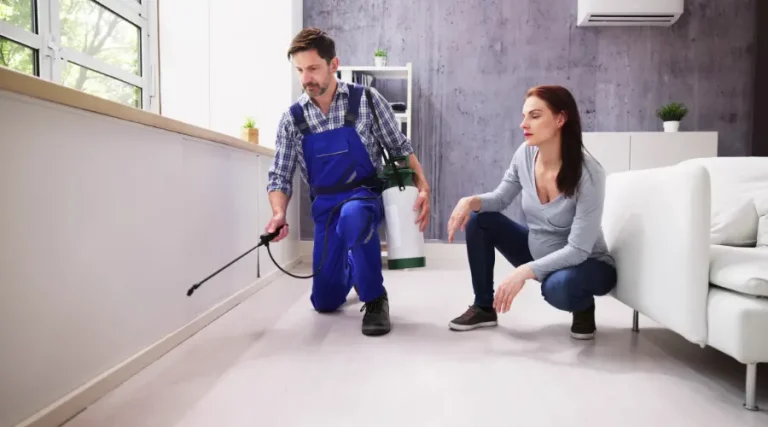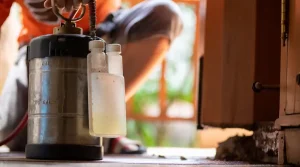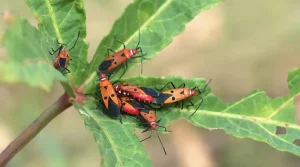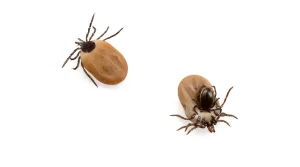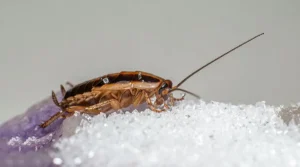Effective pest control is crucial for preserving a cozy, safe, and healthy atmosphere at your house or business. It prevents structural damage, protects against health risks, and ensures peace of mind. Whether you’re dealing with a minor issue or a severe infestation, selecting a reliable pest control service with tailored solutions is vital. This guide offers expert tips for making informed decisions, understanding pest management options, and safeguarding your property.
Key Takeaways
- Understand your specific pest issues to select the right solution.
- Choose licensed, insured, and well-reviewed pest control companies.
- Evaluate Integrated Pest Management (IPM) versus chemical control techniques to determine the best approach for your situation.
- Opt for tailored solutions with follow-up treatments to ensure lasting results.
What Is the Most Effective Pest Management Approach?
Integrated Pest Management (IPM) is widely regarded as the gold standard in pest control. Unlike traditional methods relying heavily on chemical treatments, IPM takes a holistic approach that combines:
- Preventive Measures: Sealing entry points, improving sanitation, and removing conducive conditions for pests.
- Biological Controls: Introducing natural predators or pathogens to target specific pests.
- Targeted Chemical Treatments: Using pesticides sparingly and only where necessary to minimize risks to health and the environment.
This method offers long-term solutions while reducing preserving a cozy, safe, and healthy atmosphere at your house or ecological effect, which makes it a popular option for households and businesses alike.
Which Type of Pest Control Is Best for You?
The ideal pest control method depends on factors like the pest type, infestation severity, and personal preferences. Here’s a breakdown:
- Integrated Pest Management (IPM):
- Best for: Sustainable and preventive pest control.
- Pros: Long-term effectiveness, eco-friendly, minimizes chemical use.
- Cons: Requires expertise and may take longer to show results.
- Chemical Control:
- Best for: Severe or urgent infestations requiring immediate action.
- Pros: Quick and effective when applied by professionals.
- Cons: Potential health risks if not handled properly.
- Biological Control:
- Best for: Specific pest types like mosquitoes or caterpillars.
- Pros: Natural, eco-friendly, target pests without affecting other species.
- Cons: Limited applicability and slower results.
- Mechanical Control:
- Best for: Rodents and crawling insects.
- Pros: Safe, non-toxic, involves traps and barriers.
- Cons: Labor-intensive and requires regular maintenance.
- Eco-Friendly Solutions:
- Best for: Homes with pets, children, or environmentally conscious owners.
- Pros: Low toxicity, minimal impact on the environment.
- Cons: It may need frequent applications for effectiveness.
Understanding Your Pest Control Needs
Before contacting a pest control company, it’s essential to evaluate the scope of your problem. This ensures you choose a solution that addresses your specific needs effectively:
- Identify the Pest
- Common culprits include ants, termites, rodents, cockroaches, mosquitoes, bed bugs, and spiders.
- Accurate identification helps in choosing the proper treatment.
- Evaluate the Severity
- Determine whether it’s a minor nuisance (e.g., a few ants) or a severe infestation (e.g., termites damaging wooden structures).
- Consider Environmental Impact
- Those prioritizing eco-conscious solutions should seek providers offering green pest control methods.
- Determine the Type of Service
- Residential Services: Focus on safety and comfort at home.
- Commercial Services: Adhere to industry-specific regulations, such as food safety codes for restaurants.
Choosing a Pest Control Company
The right pest control company can make all the difference. Follow these steps to find a reliable service provider:
- Licensing and Certifications
- Verify the company holds valid licenses for your region.
- Look for certifications like QualityPro, which indicate adherence to industry standards.
- Experience and Reputation
- Choose a company with a track record of handling your specific pest problem.
- Read online reviews, check ratings, and ask for references from the Better Business Bureau (BBB).
- Treatment Options
- Chemical Treatments: Effective for severe infestations but should be applied professionally.
- Biological Controls: Ideal for targeted, eco-friendly pest management.
- Mechanical Methods: Effective for trapping and deterring pests physically.
- Eco-Friendly Solutions: Best for families with safety and environmental concerns.
- Inspection and Customization
- Reputable companies offer thorough inspections to identify the root cause of the issue.
- Avoid one-size-fits-all approaches; a tailored treatment plan ensures better results.
- Transparency and Communication
- Choose companies that provide clear explanations of their methods, costs, and timelines.
- Reliable services educate customers about prevention and maintenance.
- Guarantees and Follow-Up Services
- Look for companies that back their work with guarantees.
- Regular follow-ups ensure that pests are eliminated and don’t return.
FAQs: Choosing a Pest Control Service
Q: How can I ensure a pest control company is trustworthy?
A: Start by verifying their licensing and certifications. Reading customer reviews and checking with the Better Business Bureau are also helpful steps.
Q: Are eco-friendly pest control options effective?
A: Yes, when implemented correctly, eco-friendly solutions can manage pests effectively without harming the environment or non-target species.
Q: How much does pest control typically cost?
A: Costs vary widely based on factors like the pest type, infestation severity, and chosen treatment method. Obtain multiple quotes for comparison.
Q: What should I ask during the consultation?
A: Ask about their treatment methods, safety precautions, follow-up services, guarantees, and costs.
Q: Can I handle pest control myself?
A: DIY methods can work for minor problems, such as setting traps for a single rodent. However, professional services are recommended for severe infestations or long-term prevention.
Conclusion: Safeguarding Your Home or Business
Choosing the exemplary pest control service is critical for protecting your property from damage and health risks. By evaluating your pest control needs, understanding the available methods, and selecting a reputable company, you can achieve long-lasting results.
Whether you prioritize eco-friendly solutions, affordable services, or comprehensive guarantees, conducting thorough research ensures that you are a trusted partner for your pest management requirements.
For additional guidance or to learn more about professional pest control services, visit our homepage. Let us help you keep your home or business pest-free, safe, and comfortable.
Vista Pest Control proudly serves Vista and the surrounding areas, providing professional pest control solutions tailored to your needs. By combining in-depth research with years of industry expertise, we deliver superior results you can trust.

